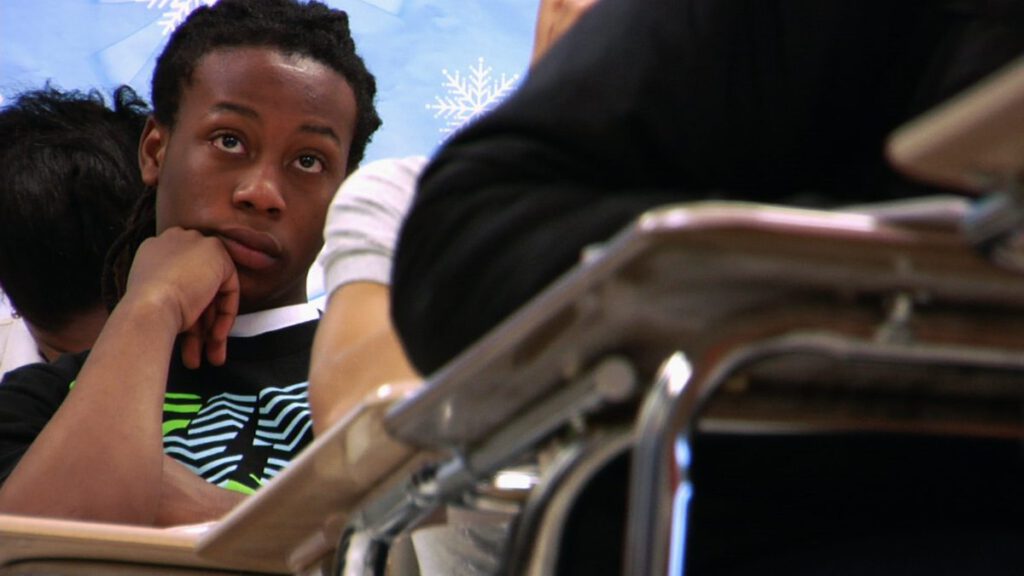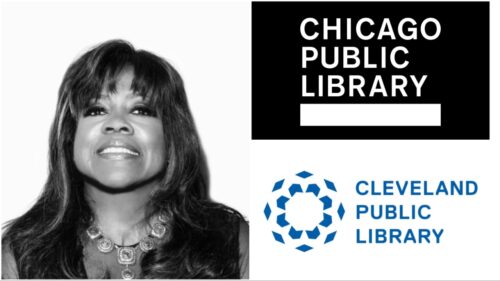The following review was written by Briana A. Williams, a Chicago high school student, as part of Columbia College Chicago’s Columbia Links journalism program for high school students. RogerEbert.com has partnered with the Chicago Urban League and Columbia Links to mentor these students and to give them a platform for their writing. Read more about the program here.–Editor
Directed by Michele Stephenson and Joe Brewster
2.5 out of 4 stars
Starting at 5 years old, Idris and Seun’s schooling experience is documented and critically analyzed by Idris’ father, Joe Brewster and his co-director Michele Stephenson, who are determined to see them succeed. In this slow-paced film, Idris and Seun, both African-American, begin as best friends attending the same prestigious, private institution, Dalton School in New York. Dalton School, at the time, is attempting to diversify their predominantly white school. In their years spent at Dalton, the boys deal with not only educational struggles, but social struggles and prejudices. These struggles are shown primarily through interviews with the boys and the parents. Although the teachers did participate in some interviews, I feel they held back their honest opinions about the boys’ development in Dalton, which makes it hard to determine their real thoughts and concerns.
The parents’ initial motives for sending their sons to Dalton are different; in fact, Idris’ mother feels that Dalton will be a social struggle while Seun’s mother thinks it would be good for him. Idris’ mother is skeptical of letting him attend a predominantly white, “rich” school because she is afraid of the troubles that may come along with that commitment. On the other hand, Seun’s mother likes the idea of him going to a predominantly white school; she wants him to feel comfortable around white people. She reveals that even being an adult she does not feel completely comfortable around white people. Given the contrasting views of the parents, it is shocking that Idris continues to attend Dalton through graduation of the twelfth grade, while Seun transfers to a city school after eighth grade graduation.
The boys face a lot of prejudiced assumptions from the teachers and administrators at the school. Idris’ mother explains the time she received a letter from the school offering a tutoring program to the students. The footage of the parents doing interviews while handling regular home chores emphasizes the effort it takes to deal with these situations. Later on, she finds out that Idris and Seun were the only two people in their grade to receive the letter. She calls the school regarding the letter, and they say it is something they sent out to the students who were on financial aid to make a “more even playing field.” This dismays her because she does not want the boys to be perceived as young black boys who are not accustomed to that particular environment (a white environment). The film presents complicated subjects like these, but describes them in clear, simple ways allowing the viewer to form their own opinion while still letting the filmmakers suggest their opinion.
In the eighth grade graduation scene, the sorrow Idris feels is clearly evident as he cries and shies away from the throng of students crowding his departing friend. Idris does not want Seun to leave. Seun leaves the school for many reasons; he is diagnosed with dyslexia, a disorder involving difficulty learning to read or interpreting letters and symbols (which fostered his slightly slower academic development), he is socially outcast, and has difficulty with the teachers. In one of Seun’s interviews, he explains how frustrating it is when “The teachers say that you can’t read something because it’s too hard, but you really can.”
Idris has a slightly different experience than Seun. Idris does fairly well in school and studies long and hard with the help of his very strict and organized parents. Idris is not struggling much academically although he does have an overlooked disorder. The teachers think he should go on medication for ADD, and after being tested Idris is diagnosed with ADD. Socially, Idris feels like he doesn’t quite fit in the same way with all the other boys. He does get invited to parties and gatherings, but when he goes, the girls always say no when he asks them to dance with him.
As the years pass, there is an obvious sense of despondency from both Seun and Idris socially and academically. When Seun transfers, he attends a school in the city where he does not do as well because he is faced with tragic events. We learn that his mother becomes ill and his brother dies in an accident at home. These are all things that affect his schoolwork and cause him to lose motivation. In contrast, while Idris faces less severe hardships than Seun, he is put under a lot of pressure and takes a fair amount of criticism from his parents, which causes him to be hard on himself.
You may think that these two boys have a terrible life but they do not. Seun is involved in many extracurricular programs, including one that gives him the opportunity to travel to Africa. Idris plays basketball on Dalton’s team, and in the seventh grade even makes the eighth grade team. The movie does an adequate job at showing the boys’ lives outside of school, but not as much as I would have liked to see.
In the end, both boys do succeed and attend college. Whether or not Dalton was the right place to go in terms of schooling is up to the viewer. I particularly believe that while Dalton does present some social downfalls for the boys, it prepares them for what life after college will really be like. Although Idris does not get accepted to the college he really wanted to attend, he goes to another college he had been interested in, and so does Seun. There is a mixture of wit, sadness, sympathy, and happiness embedded throughout the movie but, because of the home-video feel of the documentary, it made it seem less intense than it should have been.

Briana A. Williams, a junior at Oak Park and River Forest High School, is a fellow of the Columbia Links journalism and news literacy program housed at Columbia College Chicago.











